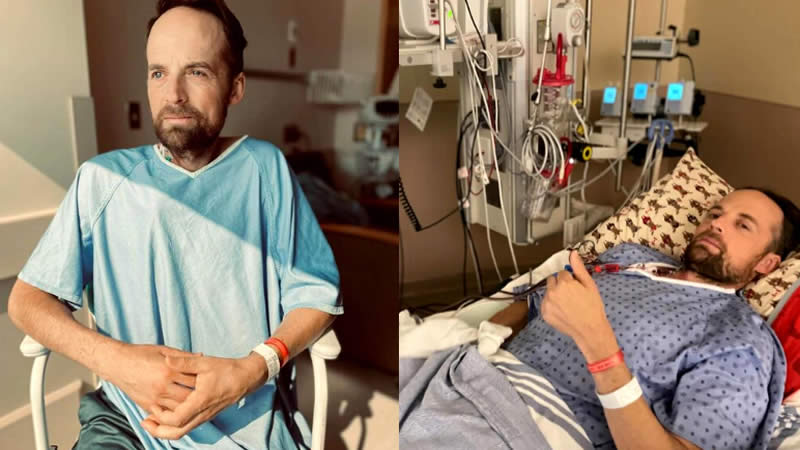Nearly 256 million Americans have received at least one dose of the vaccine since its introduction, accounting for little under 78% of the population. More than 221 million Americans are completely vaccinated, with approximately 104 million receiving at least one booster dose.
Vaccines remain the best choice for fighting the deadly virus, and America now has one of the highest vaccination rates in the world. While vaccines may cause side effects, the advantages of the Covid-19 vaccination far outweigh the known and potential hazards.
Several news sites recently reported on a 40-year-old man who experienced an autoimmune reaction and was temporarily paralyzed after receiving his first Covid-19 vaccine dose, and he is now entitled to federal compensation.
Ross Wightman, a 40-year-old Canadian, was happy to learn that he was qualified for Covid-19 vaccination more than a year ago.
He went to a local clinic without reluctance and got the AstraZeneca COVID-19 vaccine. However, ten days later, he started to experience the vaccine’s initial negative side effects, and he was diagnosed with Guillain-Barre syndrome and momentarily paralyzed. Wightman’s back pain became so severe in the days ahead that he could barely walk.
Wightman now claims that his vaccine injury has been certified, making him the first patient eligible for compensation from the federal government.
According to the federal government’s Vaccine Injury Support Program, anyone who suffers a “serious and permanent” injury as a result of vaccination will be paid.
Wightman has been out of work since becoming ill, and he finally received a letter from the program last month indicating that a medical review board determined a “probable causal association” between the injury(ies) he sustained and the vaccination.
Until this winter, the program showed that only ‘less than five’ claims had been approved, despite the fact that over 400 persons had made claims.
Everything was really slow and the back-and-forth communication was nothing but poor when he filed the claim and first started communicating with the federal government.
With no other options, he decided to go to the media in February, which corresponded with the effective communication over his request.
“Things have still been slow, but he’s (the federal case manager) always been there to answer a question or make a phone call. And that’s really all you can ask for,” Wightman said.
He also heaped praise on the healthcare workers and physical therapists that have helped him through his recovery. Because he was denied an exemption to the provincial vaccine passport program — provincial health officials insisted he was able to get a second dose — those appointments were among his only social interactions.
Whitman refused to say his total allotment, citing privacy concerns but claimed the maximum payout under the scheme is around $284,000, according to the organization’s website.
Wightman claimed that he was not entitled to the full amount. He claims he is also eligible for up to $90,000 in annual income replacement.
Wightman said his recovery process hasn’t been linear. He relapsed twice while in the hospital and was released after 67 days. “When I was discharged, I could walk, assisted, 30, 40 feet, and I would be gassed.”
Now, he says he “can now go for a slow 40-minute walk,” which he says he is grateful for, but as a typically active person, “it’s a far cry from where I was before.” “Going for a walk with my wife or a friend and just seeing the sights and sounds, those are probably my favorite things right now,” he added.

